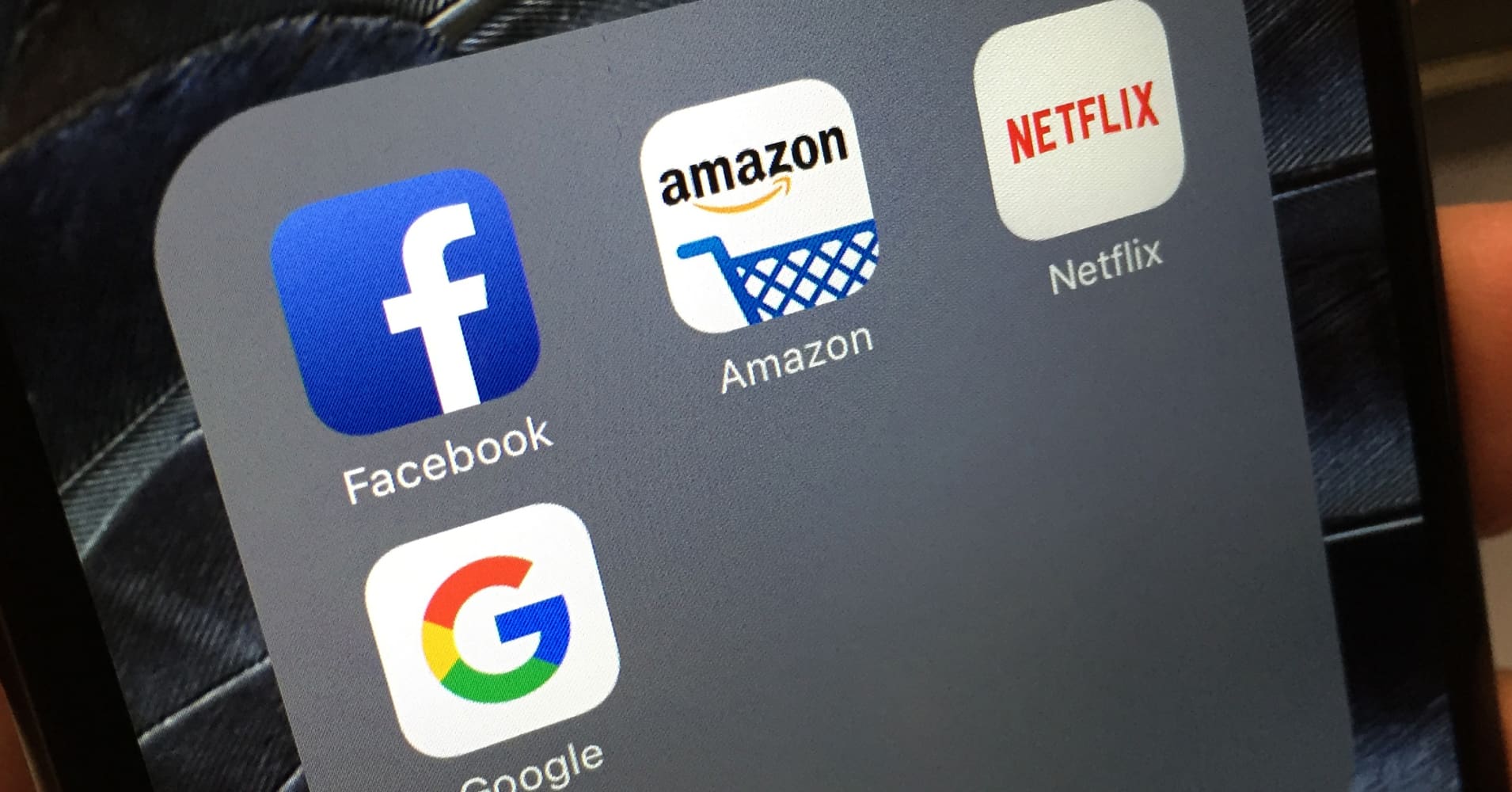Sometimes, CNBC’s Jim Cramer wishes FANG, the acronym he uses to talk about the stocks of Facebook, Amazon, Netflix and Google, now Alphabet, had never been created.
“I never thought I’d say this, but I rue the day we created this silly thing,” the “Mad Money” host said one day after Facebook’s third-quarter earnings report. “Now, there are 10 FANG ETFs that link them all together. Shameless.”
The social media giant’s mixed results sent the other FANG stocks on a roller-coaster ride as the exchange-traded funds that package them all together forced them to trade “practically in lockstep” with shares of Facebook, Cramer said.
“It’s the power of the ETFs. When one FANG stock gets wrecked, they all get whacked. When one rallies, they all rally, as we saw today, with Facebook ultimately gaining 4 percent and the rest of FANG following suit,” he said.
Calling this kind of action “monumentally stupid,” Cramer stressed how different each FANG company is from the others, adding that “it’s a mistake to write them off” because of their distinct prospects and massive end markets.
“Sure, they each have some sort of overlap, but you know, really, what they have in common? The fact that … they used to spell the word FANG, which is why we on ‘Mad Money’ coined the … acronym five years ago,” he said.
Even so, “FANG is by no means out of the woods” because of the weight these FANG-laden ETFs carry, the “Mad Money” host warned. He noted that many of them include the stock of Apple, and that any weakness in the iPhone maker’s Thursday earnings report could bring trouble.
“It’s entirely possible Apple talks about a Chinese slowdown. They might even have a miss in service revenue,” he said. “Unlike the core FANG names, Apple’s stock is barely down from its highs. So get ready for more short-term volatility, which, of course, is code for vicious, exaggerated declines by ETFs.”
And while FANG’s stock charts “remain terrible” and each company, especially Facebook, still faces challenges, Cramer wasn’t comfortable writing them off entirely because of momentary, market-driven and possibly mechanical pain.
“The bottom line here is that there’s a reason these four companies have been able to disrupt entire industries over and over again, and that reason is the fundamentals,” he said. “Even when the FANGs screw up, they’re still incredible companies.”

Be the first to comment